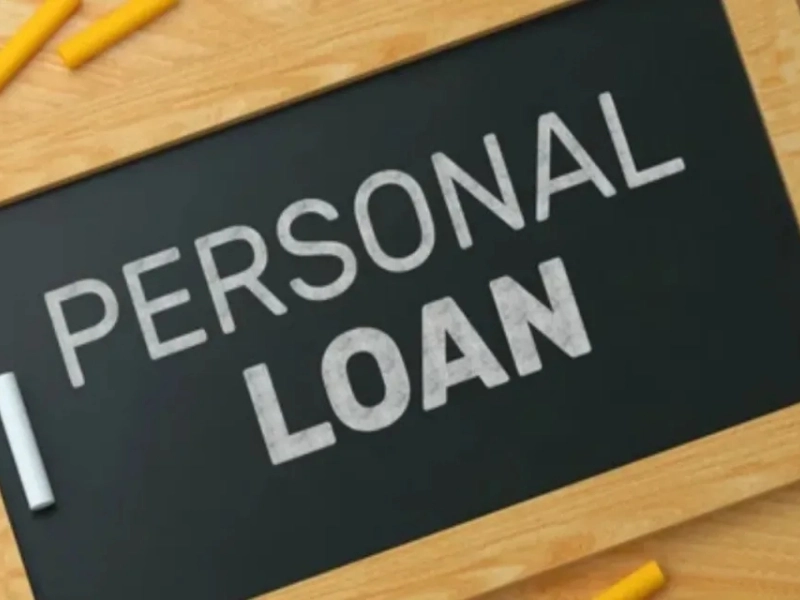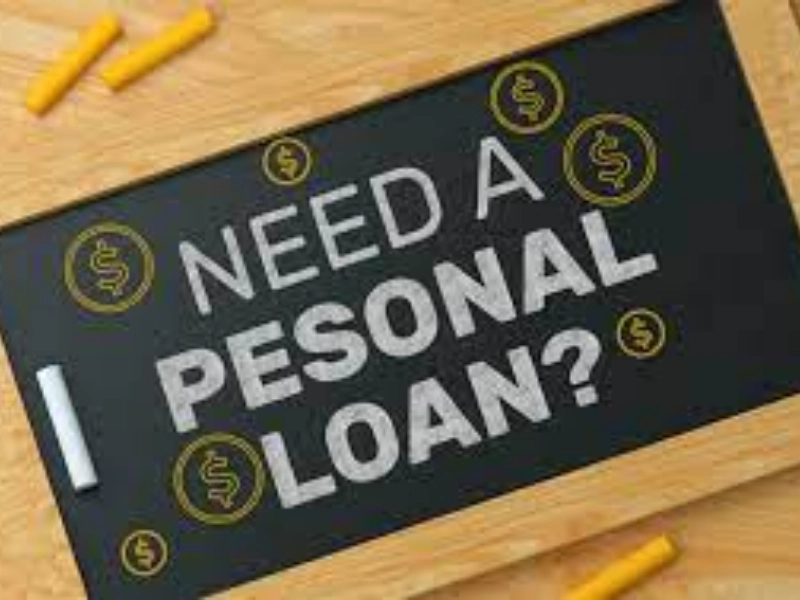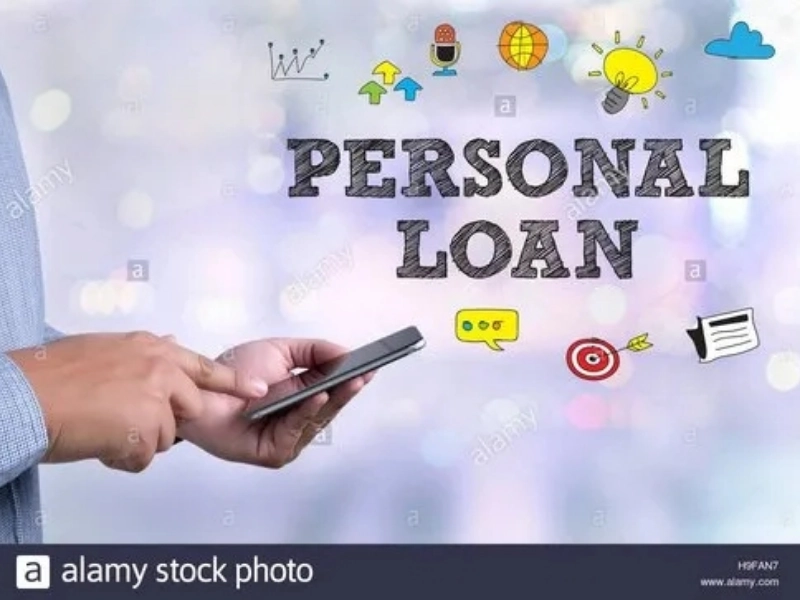Financial empowerment is creating a plan to enhance your financial situation by making wise investments in the future, managing your debt responsibly, and practicing healthy saving and spending habits. It also entails respecting your morals, developing a healthy money mindset, and realizing your value. Generally speaking, personal loans are unsecured loans that you can get depending on your debt-to-income ratio and credit score. Discover responsible personal loan usage techniques to accomplish your objectives and create a more secure financial future.
 The US has record levels of credit card debt; therefore, it could be wise to think about taking out personal loans to pay off current bills. Personal loans usually have cheaper interest rates than credit cards. This could lead to significant monthly payment savings as well as a reduction in the total cost of debt repayment.
Additionally, personal loans have set terms and repayment schedules that might lessen the chance that a payment will be missed. This might be especially useful if you have many cards with varied balances and due dates.
If you pay your debts consistently and on time, taking out a personal loan to pay off debt may also help you improve your credit scores. By doing this, you may be able to improve your rating and eventually be eligible for larger loans, such as mortgages or auto loans. If you choose to take out a personal loan, it's critical to compare rates from several lenders and stay away from those that impose additional costs like origination or prepayment penalties.
The US has record levels of credit card debt; therefore, it could be wise to think about taking out personal loans to pay off current bills. Personal loans usually have cheaper interest rates than credit cards. This could lead to significant monthly payment savings as well as a reduction in the total cost of debt repayment.
Additionally, personal loans have set terms and repayment schedules that might lessen the chance that a payment will be missed. This might be especially useful if you have many cards with varied balances and due dates.
If you pay your debts consistently and on time, taking out a personal loan to pay off debt may also help you improve your credit scores. By doing this, you may be able to improve your rating and eventually be eligible for larger loans, such as mortgages or auto loans. If you choose to take out a personal loan, it's critical to compare rates from several lenders and stay away from those that impose additional costs like origination or prepayment penalties.
 One of the many uses of a personal loan is to finance an automobile. Since it's usually unsecured, the lender won't seize your assets if you don't make your payments on time, unlike with an auto loan, which requires you to pledge security.
That does not imply, however, that personal loans are always less expensive than other types of funding. Origination costs, which cover loan processing and can be added to your debt or deducted from the amount you are paid, are levied by certain lenders. Your borrowing expenses may also increase if they include optional payment protection insurance or prepayment penalties.
When taking out a personal loan to consolidate debt or make a large purchase, it's crucial to weigh all of your financing alternatives. Before moving forward, use a personal loan calculator to estimate your monthly payments and make sure they are within your means. According to a recent Investopedia survey, debt consolidation and home renovations were the two most popular reasons individuals took out personal loans.
One of the many uses of a personal loan is to finance an automobile. Since it's usually unsecured, the lender won't seize your assets if you don't make your payments on time, unlike with an auto loan, which requires you to pledge security.
That does not imply, however, that personal loans are always less expensive than other types of funding. Origination costs, which cover loan processing and can be added to your debt or deducted from the amount you are paid, are levied by certain lenders. Your borrowing expenses may also increase if they include optional payment protection insurance or prepayment penalties.
When taking out a personal loan to consolidate debt or make a large purchase, it's crucial to weigh all of your financing alternatives. Before moving forward, use a personal loan calculator to estimate your monthly payments and make sure they are within your means. According to a recent Investopedia survey, debt consolidation and home renovations were the two most popular reasons individuals took out personal loans.
 Personal loans are a wonderful way to finance your house purchase if you're going to buy one. A personal loan can help you lower your debt-to-income ratio (DTI), which is a factor that mortgage lenders consider when issuing a mortgage, and replace several bills with an easy-to-remember monthly payment.
Furthermore, compared to credit cards, personal loans usually have cheaper interest rates and don't need collateral. In addition, personal loans fund more quickly than the majority of mortgage products.
Is it possible for some prospective homeowners to finance their down payment on a new house using a personal loan? Although this is feasible, it is usually not recommended. A large number of mortgage lenders will only take a down payment drawn from liquid assets like investments and bank accounts. Moreover, your DTI ratio can suffer if you use a personal loan for the down payment. For this reason, while purchasing a property, it's crucial to look into alternative financing possibilities.
Personal loans are a wonderful way to finance your house purchase if you're going to buy one. A personal loan can help you lower your debt-to-income ratio (DTI), which is a factor that mortgage lenders consider when issuing a mortgage, and replace several bills with an easy-to-remember monthly payment.
Furthermore, compared to credit cards, personal loans usually have cheaper interest rates and don't need collateral. In addition, personal loans fund more quickly than the majority of mortgage products.
Is it possible for some prospective homeowners to finance their down payment on a new house using a personal loan? Although this is feasible, it is usually not recommended. A large number of mortgage lenders will only take a down payment drawn from liquid assets like investments and bank accounts. Moreover, your DTI ratio can suffer if you use a personal loan for the down payment. For this reason, while purchasing a property, it's crucial to look into alternative financing possibilities.
 Investing with a personal loan can help you accumulate wealth over time. However, keep in mind that investing carries some danger, so before taking out a personal loan for this purpose, you should be aware of how much risk you can tolerate.
Taking out a personal loan to pay for continuing education classes, for instance, can make sense if you want to invest in your profession and the course will improve your chances of finding employment or enable you to make more money. It's crucial to balance the risks involved with the possible future profits from your investment, though.
Not everyone should utilize personal loans for investing, and some lenders may place limitations on how you can use the money you borrow. For example, certain lenders prohibit you from using their funds to purchase stocks or exchange-traded funds. 1.
Investing with a personal loan can help you accumulate wealth over time. However, keep in mind that investing carries some danger, so before taking out a personal loan for this purpose, you should be aware of how much risk you can tolerate.
Taking out a personal loan to pay for continuing education classes, for instance, can make sense if you want to invest in your profession and the course will improve your chances of finding employment or enable you to make more money. It's crucial to balance the risks involved with the possible future profits from your investment, though.
Not everyone should utilize personal loans for investing, and some lenders may place limitations on how you can use the money you borrow. For example, certain lenders prohibit you from using their funds to purchase stocks or exchange-traded funds. 1.